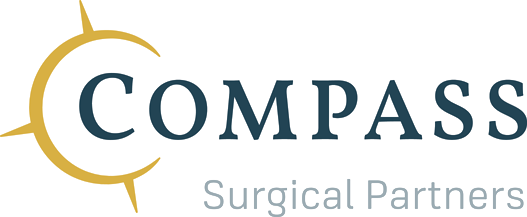Medicare Publishes Reimbursement Rates for TSA in ASCs
The Ambulatory Surgery Center Association announced November 3 that Medicare will reimburse for total shoulder arthroplasties performed in ASCs in 2024. The advocacy group hails this and several other recent developments as “victories” for Medicare beneficiary access to ASC care.
Total shoulder arthroplasty (TSA) codes 23470 and 23472 were not listed in the proposed rule for 2024, which the Centers for Medicare & Medicaid Services (CMS) had released July 13th. But the TSA codes appear in the recently published 2024 final rule, a result of the ASCA’s advocacy.
Recently-Added ASC-CPL Codes and TSA Reimbursement Rates
The final rule adds other codes to the ASC covered procedures list (CPL) that the proposed rule did not list, ASC has announced. The codes and their abbreviated descriptors are:
21194 (Reconst lwr jaw w/graft)
21195 (Reconst lwr jaw w/o fixation)
23470 (Reconstruct shoulder joint)
23472 (Reconstruct shoulder joint)
27006 (Incision of hip tendons)
27702 (Reconstruct ankle joint)
29868 (Meniscal trnspl knee w/scpe)
33289 (Tcat impl wrls p-art prs snr)
37192 (Redo endovas vena cava filtr)
60260 (Repeat thyroid surgery)
C9734 (U/s trtmt, not leiomyomata)
Reimbursement rates for the newly added total shoulder arthroplasty codes are:
|
HCPCS |
APC |
PI |
Short Descriptor |
National |
|
23470 |
5115 |
J8 |
Reconstruct shoulder joint |
$9,158.18 |
|
23472 |
5116 |
J8 |
Reconstruct shoulder joint |
$13,779.06 |
What the rule means for Medicare beneficiaries who need TSA.
It’s been a long time coming. Commercial payers have long reimbursed total shoulder replacements in ASCs. CMS removed total shoulder arthroplasties from the inpatient-only list for CY 2021, allowing Medicare beneficiaries to have their procedures performed in an HOPD. In the first quarter of 2021, 22 percent of TSAs performed for Medicare beneficiaries were outpatient, according to the Journal of Shoulder and Elbow Surgery. By the first quarter of 2022, 38 percent of Medicare bene TSAs were outpatient.
The number of outpatient TSAs continues to grow. About 30 percent of Medicare patients have comorbidities that make inpatient TSA the best choice. But nationwide, approximately 70 percent of Medicare beneficiaries who need TSA are good candidates for outpatient surgery.
CMS has been slow to add total shoulder replacements to the ASC-CPL, which means that Medicare patients haven’t been able to receive TSAs at ASCs. This limitation has frustrated upper extremity surgeons, who routinely perform TSAs for Medicare beneficiaries in HOPDs and prefer to have the option to perform the procedure in an ASC when that option is best for the patient.
Medicare beneficiaries have been frustrated too. Many prefer to receive procedures in ASCs because they understand the outcomes are equivalent or better. Moreover, many patients prefer the superior patient experience that ASCs are equipped to offer. And because of price transparency, many Medicare beneficiaries understand that they pay less out-of-pocket for ASC procedures.
If you are curious about what the 2024 ASC-CPL and the TSA Medicare reimbursement rates mean for your health care organization, we are happy to talk with you. Contact us here.
Recent News
-
Bon Secours Mercy Health and Compass Surgical Partners Announce Grand Opening of World-Class Surgery Center in Greenville, South Carolina
-
Healthcare Trailblazers: The Compass Surgical Partners Journey
-
Proactive Payer Credentialing Preps Your New ASC for Financial Success
-
Advanced Joint and Spine Institute Orlando and Compass Surgical Partners Open World-Class Orthopedic Surgery Center
-
How Your Health System Can Win the CV ASC Market
Copyright © 2024 Compass Surgical Partners
Site Design by Swarm Interactive | Admin Login
